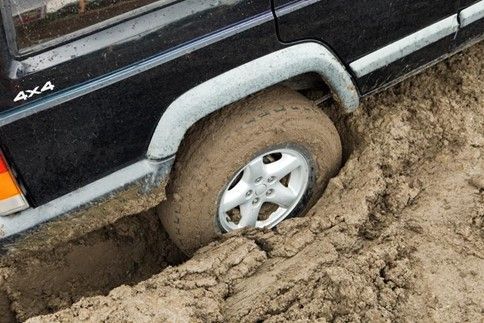Troubleshooting Tips for a Car That Won't Start

A car that won't start is one of the most frustrating problems drivers face. Whether you're stuck in your driveway, at work, or on the side of the road, a non-starting vehicle can disrupt your day. While some issues may require professional help or towing services, there are several troubleshooting steps you can take before calling for assistance. In this article, we’ll walk you through common reasons a car won't start and what you can do to troubleshoot the issue.
1. Check the Battery
One of the most common causes of a car not starting is a dead or weak battery. If you turn the key and hear a clicking sound, your battery might be the culprit. Begin by inspecting the battery terminals for any signs of corrosion or loose connections. If the terminals appear clean, attempt to jump-start the car with jumper cables and another vehicle. If this resolves the issue, you may need a new battery, or the existing one might need a charge.
2. Examine the Fuel System
Another common reason for a car that won’t start is a fuel-related issue. Make sure there’s enough fuel in the tank—sounds simple, but it’s a mistake many drivers make! If you’re confident you have fuel, the issue might lie with the fuel pump, filter, or fuel injectors. A clogged fuel filter or a malfunctioning fuel pump can prevent fuel from reaching the engine, causing the car to fail to start.
3. Inspect the Ignition System
The ignition system is what enables your car to start. If there’s an issue with the ignition switch, ignition coil, or spark plugs, your car may not start. First, check to see if the dashboard lights come on when you turn the key.If they don't, the ignition switch may be malfunctioning. If the lights come on but the engine doesn't start, you might need to replace faulty spark plugs or ignition coils.
4. Verify the Starter Motor
The starter motor is essential for initiating your engine. If the motor is faulty, your car might not start even with a charged battery. Listen closely when you try to start your car; if you hear a grinding noise or nothing at all, it could indicate an issue with the starter motor. If this is the problem, a mechanic may need to replace the starter motor.
5. Check the Fuses
A blown fuse can occasionally stop your car from starting. Refer to your vehicle's manual to find the fuse box and inspect it for any blown fuses. If you find one, replace it and try starting the car again. Keep in mind that a blown fuse could indicate a deeper electrical issue, so it's worth consulting a professional if the problem persists.
6. Ensure the Security System Is Not Engaged
Modern vehicles come with anti-theft security systems that can prevent the car from starting if they are malfunctioning. If your vehicle has an anti-theft system, make sure it's not inadvertently preventing the ignition from engaging. Try resetting the system by following the instructions in your car’s manual or using the spare key if you have one.
7. Listen for Strange Noises
When trying to start your car, listen for any unusual sounds that could help identify the problem. A clicking sound usually indicates a battery issue or faulty starter motor. A grinding noise could mean an issue with the starter or flywheel. Pay attention to any other noises and take note of them to help a mechanic diagnose the problem more effectively.
8. Check the Neutral Safety Switch
If you have an automatic transmission, the neutral safety switch could be preventing your car from starting. This switch ensures that your vehicle only starts in "Park" or "Neutral." If it malfunctions, your car may fail to start even if everything else seems fine. Try shifting the transmission into Neutral and see if that allows the car to start.
9. Call for Professional Help or Towing Services
If you've tried all of the above troubleshooting steps and your car still won’t start, it’s time to call for professional assistance. A towing service can help you get your vehicle to a repair shop if you’re unable to diagnose or fix the issue yourself. Towing services are also invaluable if you find yourself stuck on the side of the road and need immediate help.








